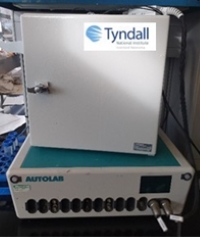Suite
About
Suite of potentiostats: - Single and bi-potentiostats - Multiplexer modules - Impedance Spectroscopy modules
Description
A potentiostat is an essential device used in electrochemical experiments to control the voltage between a working electrode and a reference electrode while measuring the resulting current. It allows precise manipulation of electrochemical reactions by applying specific voltages to the working electrode, thus facilitating studies on corrosion, energy storage, sensors, and more.
The potentiostat enables precise control of the electrochemical conditions within the cell, allowing researchers to apply a constant potential or voltage to the working electrode while measuring the resulting current flow. This control is essential for studying redox reactions, electrode processes, and material properties.
Potentiostats facilitate various electrochemical techniques, such as voltammetry, amperometry and impedance spectroscopy, providing valuable insights into the sensor’s behavior. This enables the fine-tuning of sensor parameters for improved detection limits, response times, and overall reliability.
Technical specifications:
– Single and bi-potentiostats
– Variety of electrochemical technique such as cyclic voltammetry, square wave voltammetry or impedance spectroscopy
Case study:
The user can avail of electrochemical characterisation of sample produced, using a variety of electrochemical techniques.
Access Provider / Facilities




